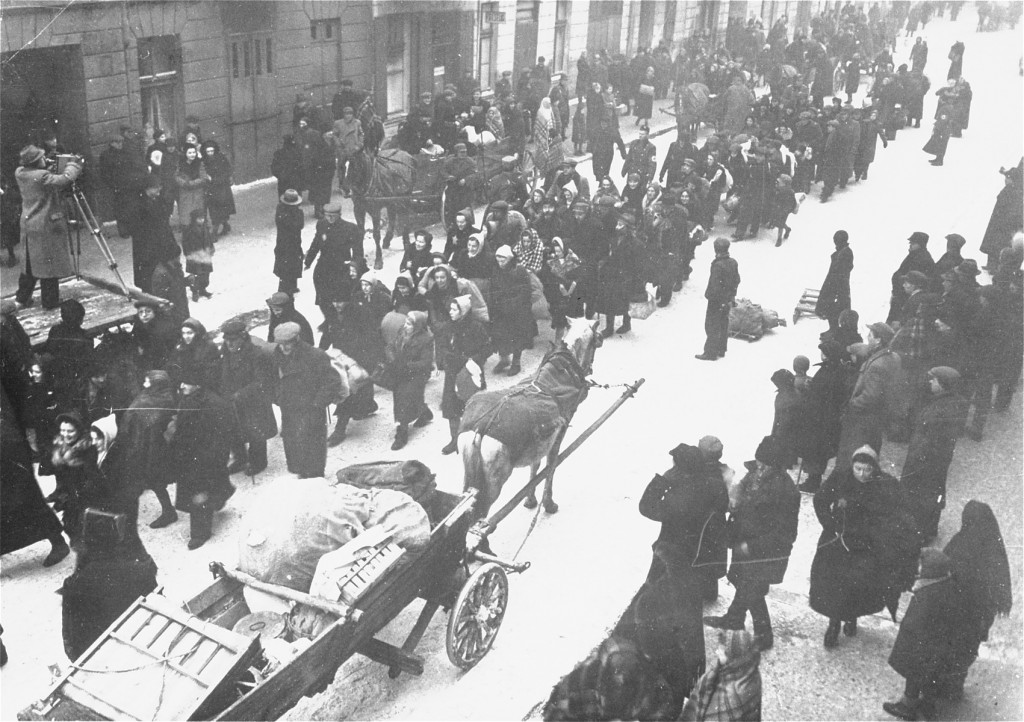
Israel Unikowski
The Jewish children of Lodz suffered unfolding harsh realities after the German invasion of Poland. Some of the children, among them Israel Unikowski, recorded their experiences in diaries. Their voices offer a view into the struggle of a community and its young to live in spite of the most difficult circumstances.
Excerpt from Israel Unikowski's Diary
“From this day every German may shoot as many Jews as he wants. If anybody came near the wire fence, as far as his rifle could reach, he could shoot him. Hundreds and hundreds of people perished in the Ghetto this way.”
—Israel Unikowski, age 13, diary excerpt
Israel's Story
Israel Unikowski was born in Kalisz, Poland, in 1928. His mother died when he was just three years old. His father fled Poland in 1935. This left Israel and his older brother living in separate orphanages.
After the German invasion of Poland in September 1939, the staff of Israel's orphanage fled leaving 32 boys under the care of one adult. The group rented a cart and began the journey to Lodz.
Once the group reached Lodz, the Jewish community and Mordechai Chaim Rumkowski took over the care of the boys. In 1940, the orphans were transferred with the rest of the Jews of Lodz to the ghetto, which was later sealed. In the ghetto, Israel was reunited with his brother who had also made his way to Lodz. Israel quickly obtained a job in a tailoring workshop while living in the orphanage.
Following the Gehsperre Aktion in the Lodz ghetto, he and his brother lived together in a rented room and Israel began working in a toymaking workshop. His brother died in 1943 after becoming ill, leaving Israel alone. In 1944, Israel was deported to Birkenau where he was put a on a labor detail. The detail was eventually marched to Buchenwald where Israel was liberated.
Critical Thinking Questions
Why are diaries an important part of the historical record?
What makes children’s diaries distinct?
How are some of these accounts different from that of Anne Frank?
Investigate the experiences of children in the ghettos.

